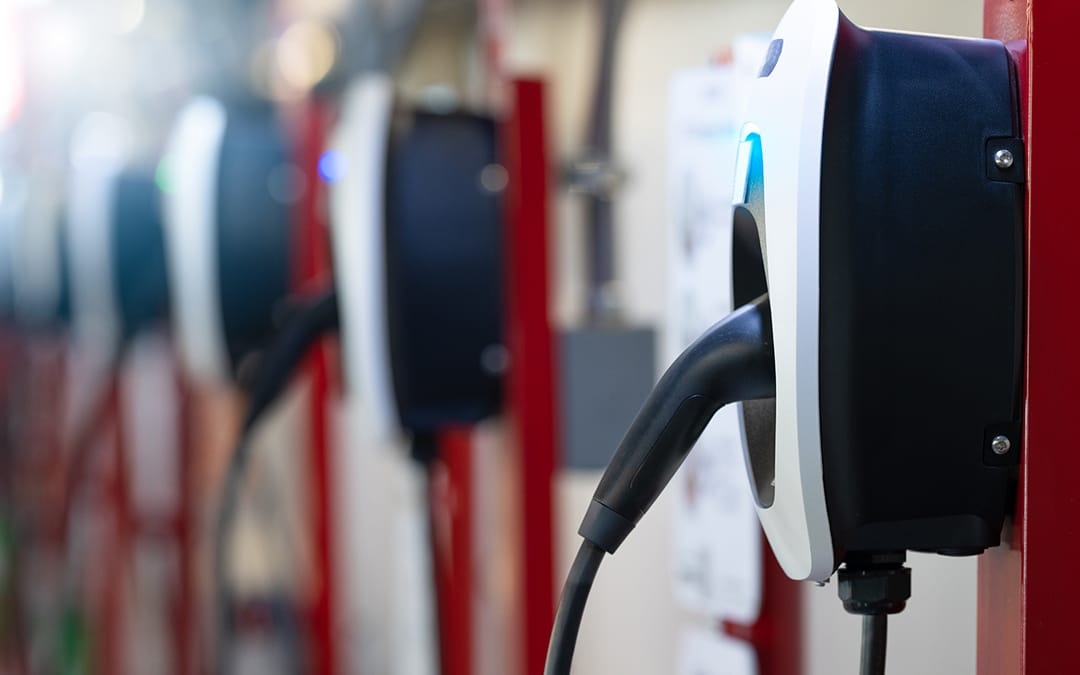Colorado EV Funding Sparks Opportunities for Commercial EV Charging Businesses
Denver, CO – Colorado is aggressively paving the way for an electric future, and businesses are poised to be key beneficiaries. Through a robust suite of state-funded programs, grants, and incentives, the Centennial State is not only expanding its electric vehicle (EV) charging infrastructure but also creating a fertile ground for the emergence of commercial EV charging centers. This significant government backing is substantially lowering the financial barrier to entry and creating attractive business models for entrepreneurs and existing companies looking to capitalize on the growing EV market.
At the forefront of this initiative is the Colorado Energy Office (CEO), which manages several key funding programs. These programs provide substantial financial assistance for the purchase and installation of EV charging equipment, making the upfront investment for a commercial charging business significantly more manageable.
Objective
To establish a statewide network of electric vehicle (EV) charging stations as part of a national goal of 500,000 chargers along major interstates and highways and to support seamless EV travel and accelerate EV adoption, the target of 940,000 EVs by 2030.
How Biz-Reps Helps
Biz-Reps offers a unique advantage over many other EV Charging equipment companies in that we are the EV charger manufacturer’s representatives. Meaning we have a direct business relationship with the OEM resulting in better supply and inventory and in many cases lower pricing. But it doesn’t stop there, we also provide consulting to help you select the right equipment, network and coordinate the permitting, installation and setup of your station. Over the past few years, Biz-Reps has also helped businesses identify state and Federal funding programs to help them offset capitol investment costs. Visit Our EV Chargers For Business Section
Funding and Federal Approval
- Total funding: $57 million over the next five years for Colorado’s National Electric Vehicle Infrastructure (NEVI) corridor system .
- Federal approval from the U.S. Joint Office of Energy and Transportation enables immediate project initiation .
- NEVI funding covers up to 80% of eligible infrastructure costs .
Implementation Approach
- Chargers to be built, owned, and operated by private, public, and nonprofit entities through grants (CDOT does not own/operate chargers) .
- NEVI plan addresses:
- Public engagement
- Equity for rural and disadvantaged communities
- Workforce development
- Cybersecurity considerations
Equity and Community Benefits
- At least 40% of NEVI benefits go to disproportionately affected communities, including:
- Individuals with disabilities
- Rural areas
- Historically underserved populations
- Direct benefits: Increased infrastructure investment and construction projects .
- Indirect benefits: Job creation in clean energy, especially for underserved communities .
- NEVI funds can support job training programs, promoting upward mobility .
The anticipated benefits of Colorado’s NEVI Plan include both direct benefits such as the number and dollar value of infrastructure projects, as well as indirect benefits such as clean energy job creation related to infrastructure installation and maintenance. NEVI funds can also be used for job training, which could provide upward mobility for residents of disproportionately affected communities.
How State Funding Sweetens the Deal for Businesses:
The financial incentives offered by Colorado dramatically alter the economic equation for starting a commercial EV charging business. Here’s how:
- Reduced Upfront Costs: The grants from programs like Charge Ahead Colorado can cover a significant portion of the equipment and installation costs, which are the primary capital expenditures for a charging center. This lower initial investment reduces financial risk and accelerates the timeline to profitability.
- Improved Return on Investment (ROI): With a lower initial outlay, the ROI for a charging station becomes much more attractive. Businesses can expect to recoup their investment and start generating profits sooner.
- Diverse Revenue Streams: The funding enables businesses to explore various revenue models. These can include:
- Pay-per-use fees: The most direct model, where drivers pay for the electricity they consume.
- Subscription services: Offering frequent users a monthly or annual subscription for discounted charging rates.
- Advertising and sponsorships: Utilizing the charging station’s location and screen time for advertising.
- Ancillary services: Locating charging stations near retail, food, or other services to attract customers who will spend money while their vehicle charges. The state’s focus on placing chargers in community hubs and along corridors supports this model.
- Attracting and Retaining Customers: For existing businesses like retailers, restaurants, and hotels, installing EV chargers can be a powerful tool to attract a growing demographic of EV owners. Offering charging as an amenity can increase customer dwell time and loyalty.
- Future-Proofing Business Operations: As the transition to electric vehicles accelerates, having charging infrastructure on-site will become an essential business amenity, similar to Wi-Fi today. Early adoption, supported by state funding, positions businesses as forward-thinking and sustainable.
Beyond State Funding: A Confluence of Incentives
In addition to state-level programs, businesses in Colorado can also leverage other incentives, including:
- Federal Tax Credits: The federal government offers tax credits for the purchase and installation of commercial EV charging equipment, further reducing the financial burden.
- Utility Rebates and Programs: Many of Colorado’s utility companies offer their own rebates and special time-of-use rates for commercial charging installations, which can lower both upfront and ongoing operational costs.
A Roadmap for Aspiring Charging Entrepreneurs
The path to starting a commercial EV charging business in Colorado is clearer than ever. The Colorado Energy Office and Drive Clean Colorado provide resources and guidance for businesses looking to navigate the application process for funding. By understanding the available incentives and developing a solid business plan that leverages the various revenue opportunities, entrepreneurs and existing businesses can play a vital role in Colorado’s electric vehicle revolution while building a profitable enterprise. The state’s commitment to a clean energy future is, in essence, an open invitation for businesses to plug in and power up.

